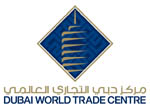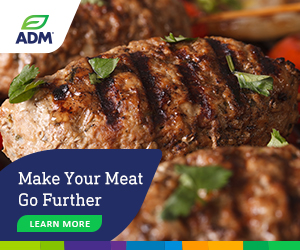Fundamental Shifts Needed In Global Food Industry, Says Al Awar
 Dubai’s ESMA hosts Global Halal Industry Platform as part of Gulfood programme
Dubai’s ESMA hosts Global Halal Industry Platform as part of Gulfood programme
Dubai, UAE: The global food industry needs to make fundamental shifts in its operations to advance food safety worldwide, the Global Halal Industry Platform held in Dubai today has heard.
The Platform, organised by the Emirates Authority for Standardisation and Meteorogy (ESMA) and part of the educational programme of Gulfood, the world’s largest annual food event running at Dubai World Trade Centre (DWTC) until Thursday night, heard the transformation call from Abdulla Mohammed Al Awar, CEO of Dubai Islamic Economy Development Centre (DIEDC).
In the keynote address, Mr Al Awar said: “Today we have reached a point where we have to make fundamental changes in the way we do business. We must be responsive and innovative in advancing food safety actions and promoting responsible investments that can enhance the quality of life while leaving no one behind.”

Abdulla Mohammed Al Awar, CEO of Dubai Islamic Economy Development Centre (DIEDC)
Al Awar called for increased change input from the private sector. “Amidst the public sector’s efforts to end famine, hunger and malnutrition, as well as overconsumption, there is an increasing need for the contribution of private sector companies engaged in agriculture, food processing, packaging, retail and food service,” he said.
Addressing an international audience of Halal industry leaders, Al Awar said the Halal concept is no longer the sole domain of Muslims. “It has become a new culture many countries are keen to embrace as part of their efforts to ensure a healthier and more sustainable future for their citizens.
“Awareness is key for Muslim and non-Muslim populations alike. Experts expect the latter to veer towards Halal due to rising concerns about unhygienic and unhealthy food.”
Al Awar said food safety, food production and food security are now topping the international agenda with maintaining the status quo no longer an option.
He said: “The business as usual approach has led to severe challenges that are putting the next generation at risk. There were 42 million overweight children in the world in 2015 – an increase of about 11 million over the past 15 years. In contrast, rising food prices, food scarcity in areas of conflict and natural disasters limit household access to adequate nourishment.”
The DIEDC head outlined five key objectives the Halal industry needs to embrace to ensure a healthy, sustainable future. They include: balancing future demand and supply in a sustainable manner to safeguard affordability of food; ensuring stability of food supply and protecting the most vulnerable in case of volatility; providing global access to food and ending hunger; mitigating the impact of the food production system on climate change; and maintaining biodiversity while protecting the global ecosystem and feeding the world.
Al Awar said the Halal industry is now driving the Islamic economy growth and is a key focus in DIEDC’s five-year strategy alongside Islamic finance and Islamic lifestyle.
“We have been working closely with the Emirates Authority for Standardisation and Metrology and all our stakeholders to promote and advance Halal standards,” he said. “The milestones we have achieved since 2013 – the UAE Scheme for Halal Products and the UAE Halal Mark – have set new benchmarks on a global level. Furthermore, the newly established International Halal Accreditation Forum constitutes a key enabler with a global reach that protects the growing number of Halal consumers and facilitates Halal trade among the signatory countries.
“Achieving top rankings in the Halal industry, the UAE and Dubai aim to share their successful journey of promoting the Halal concept and driving the growth of its sectors, most importantly, the food and beverage industry.”
Greater responsibility and ethical practices in the food industry are, said Al Awar, “the need of the hour.”
He added: “As the Halal culture has survived for thousands of years, we do not have to reinvent the wheel. We just need to improve it, add value and utilise innovative technology to expand its reach.”
DIEDC’s 2017-2021 strategy has three key objectives for the Halal sector. They are: increasing the global trade volume of Halal products while contributing to the resilience and diversification of the national economy; establishing a conducive ecosystem for the development of Halal trade, including globally accepted Halal standards and government support; and consolidating the status of Dubai and the UAE as a prime destination and global reference for international Halal companies.
“Today we need your contribution more than ever,” Al Awar told the audience. “Your faith in the resilient Halal system adds value to our efforts towards the globalisation of Halal culture that will have a positive impact on human lives for decades to come.”
For the third year running, Gulfood features Halal World Food, the world’s biggest annual Halal food sourcing trade show housed within a dedicated Meat & Poultry zone. “Halal World Food aligns perfectly with Dubai’s objective to become a global Islamic Economic capital,” said Mark Napier, Show Director. “As one of the show’s fastest-growing components, Halal World Food is at the heart of Gulfood 2017 and we have endeavoured to make it as accessible and convenient as possible for the many thousands of buyers eager to explore innovative product sourcing options in this increasingly lucrative sub-sector. www.dwtc.com



